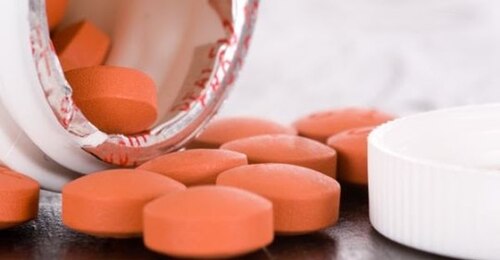This Blog Post is now in the queue for publishing as requested.
Depending on transfer load expect completion in around 15 minutes or 60 minutes if it has just been published by the owner.
This Blog Post has been removed from the queue for publishing as requested.
From Saul to Paul?
Posted by
Otto Knotzer on June 08, 2020 - 11:09am
At the beginning of the corona crisis, there were concerns that ibuprofen would negatively affect the course of Covid 19. That's history. The future could be ibuprofen therapy for Covid-19. At least one wants to investigate the potential benefits of a lipid formulation in a study. The mechanism of action remains in the dark.

Can the analgesic and anti-inflammatory ibuprofen possibly benefit Covid-19? Researchers believe that this is not out of the question and want to investigate this in a study with a special lipid formulation of ibuprofen. / Photo: Adobe Stock / Ralf
In an article, the "Bild" newspaper refers to a new Covid-19 study in Great Britain: King's College in London announces the start of the randomized LIBERATE study with a total of 230 hospitalized Covid-19 patients. In addition to the standard treatment, a study arm should also be treated with 200 mg ibuprofen capsules. This is not a "standard ibuprofen", but a lipid formulation. This is already available on the British market under the trade name Flarin®. The drug is used, for example, for muscle or joint pain and is said to provide stomach protection thanks to the lipid formulation.
The researchers in London hope to use the capsules to reduce the shortness of breath in Covid-19, which should make subsequent interventions such as artificial respiration less frequent and could shorten the length of hospital stay. They conclude from previous tests that lipid ibuprofen is more effective than standard ibuprofen in treating respiratory distress syndrome.
What is that special wording? The PZ has the pharmaceutical technologist Professor Dr. Rolf Daniels from the University of Tübingen asked to take a look. He explains that ibuprofen is dissolved under heat in a mixture of, among other things, hard fat and glycerol monolinoleate, that is, it is embedded in a lipid matrix. There is actually no such preparation on the German market. The soft capsules available in Germany contain ibuprofen in a hydrophilic vehicle. According to the pharmacist, the idea behind the lipid sheath is as follows: Ibuprofen, as an acid, is poorly water-soluble in the acidic pH environment of the stomach and there is only a very small fraction of the lipid matrix that passes into the water phase. It is only when the pH in the small intestine rises that the water solubility and thus the proportion of ibuprofen in the water phase increase.
"If less active substance is released in the stomach, there are of course fewer stomach problems," says Daniels. However, an enteric formulation of ibuprofen should have the almost identical effect. Why should the lipid formulation - if it has a protective effect of ibuprofen in Covid-19 - be more suitable? The London scientists do not explain this in their press release. Daniels is also surprised. If anything, he could only imagine changing pharmacokinetics as the reason. The active ingredient from the lipid formulation may flow in more slowly. A request from the PZ to the London researchers has so far remained unanswered.



